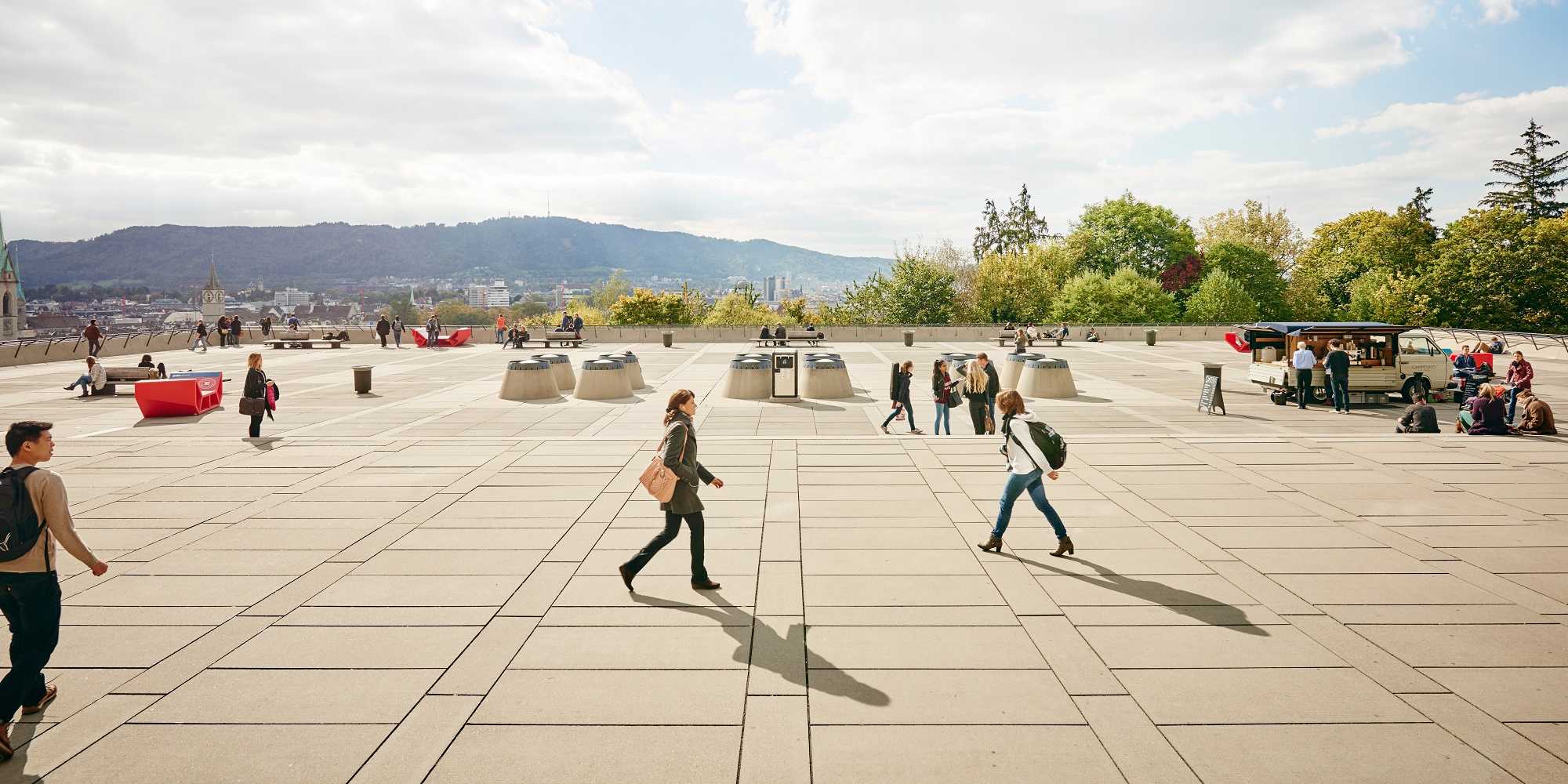Classical study programmes particularly popular at present
More than 20,000 bachelor and master students will start the Autumn Semester at ETH Zurich on 19 September. The number of new bachelor students has declined.

Around 3,100 bachelor students will begin their studies at ETH Zurich on Monday. This is almost 7% fewer new students than previous year (3,319). While an above-average number of Swiss highschool graduates forewent a gap year during the last two years due to the coronavirus and immediately begun their studies, the situation has normalised again. However, according to forecasts from ETH Zurich and the Federal Statistical Office, the number of new students will increase again in the following years.
Traditional ETH disciplines as safe harbours?
Natural science and engineering continue to be highly popular among new bachelor students. Mechanical engineering and computer science degree programmes once again rank highest with 529 (+2%) and 424 (-1%) new students respectively, followed by the bachelor’s programme for architecture with 319 new students. While architecture only experienced a slight decline in comparison to the previous year (-5%), the number of new enrollments in civil engineering declined on average by almost 23%. Moreover, there is a significant decline in study programmes dealing with the topics of sustainability and health, which is astonishing considering current social trends: in the system-oriented natural sciences there is a decrease of around 15% overall. This includes study programmes such as agricultural sciences, food sciences, environmental sciences and earth and climate sciences. A different picture emerges for the “well-tried classics”: for example, physics experienced an increase of around 12% in comparison to the previous year (with 276 new students) and chemistry increased by almost 25% (66 new students). These increases happen at the expense of decreases in other natural sciences study programmes, such as in biology, pharmaceutical sciences and computational sciences. “We see that in uncertain times such as this one, students are choosing traditional science study programmes or engineering,” says Günther Dissertori, headmaster of ETH Zurich, explaining the observable trend.
The number of Master’s students in line with the longterm growth curve
Like every year, the exact number of new admissions to the master-level programmes will only be known after the semester has commenced, as the matriculation process has not yet been completed. Traditionally, the majority of ETH bachelor graduates opt to continue their studies at ETH. In addition, some students earned their bachelor’s degree at another university in Switzerland or abroad. Applications and registrations from people with a foreign bachelor’s degree have followed the sharp upwards trend of recent years in 2022 as well; a high number of applications are received from Asia. However, the unusually high increase in foreign applications in 2021 (+19% matriculations compared to the previous year) has been shown to be an outlier attributable to international travel restrictions related to the Covid-19 pandemic (e.g. in the US).
Exchanges with other universities
Alongside these new entrants who aim to complete a full degree at ETH Zurich, around 300 exchange students will visit ETH Zurich in the autumn to study for one or two semesters. In addition to Switzerland, the most common countries of origin include Sweden, the Netherlands, Denmark, the United Kingdom, the US and Japan. Conversely, approximately the same number of ETH students will complete a semester at a host university abroad as part of the exchange programmes. A dozen students from Ukraine are also beginning a “bridging course” lasting one or two semesters at ETH Zurich. While the specially launched programme does not allow students to complete their studies at ETH, they can still earn credit points.